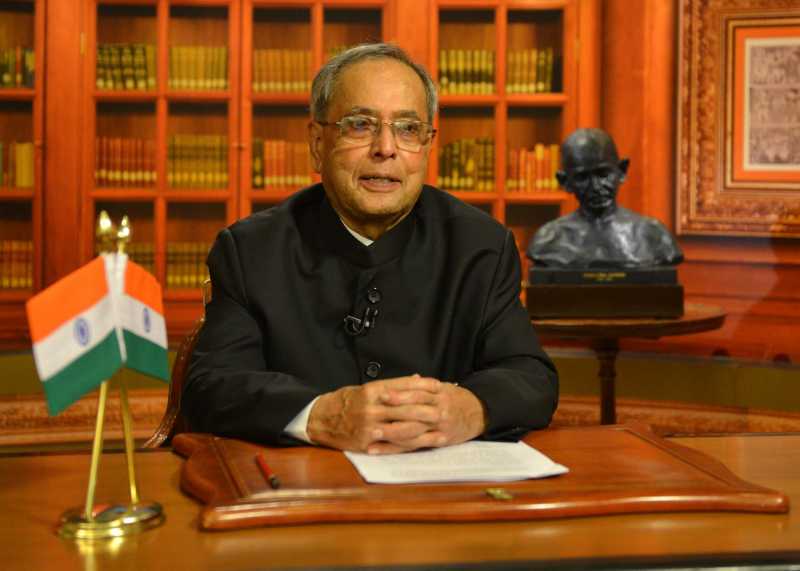
Describing India as a “beacon of democracy”, President Pranab Mukherjee said people must defend its “secular fabric with vigour” and those who believe in the “poison drip of inflammatory provocation” don’t understand the “country’s values” or “its present political impulses”.
Addressing the nation on the eve of India’s 68th Independence Day, Mukherjee cautioned the people that progress is difficult without peace. “Though an ancient civilization, India is a modern nation with modern dreams. Intolerance and violence is a betrayal of the letter and spirit of democracy,” he said in his televised address.
“Those who believe in the poison drip of inflammatory provocation do not understand India’s values or even its present political impulses. Indians know that progress, economic or social, is difficult without peace.”
The president did not elaborate but it was clear that recent utterances and activities of some Hindu nationalist and fringe groups in parts of the country had forced the first citizen of the country to speak about it.
The president also said that “across parts of Asia and Africa, attempts are being made by radical militias to redraw the maps of nations to create a geography for theocratic ideology.
“India will feel the heat of blowback, particularly as it represents the values that reject extremism in all its manifestations,” he cautioned.
He said India was a “beacon of democracy, equilibrium, inter-and-intra faith harmony.
“We must defend our secular fabric with vigour. Our security and foreign policies must combine the steel of strength with the velvet of diplomacy even as we persuade the like-minded as well as the hesitant to recognise the substantial dangers that breed within indifference,” he said.
Mukherjee also spoke about taking up the challenges of governance by “reforming the policies, practices and systems of governance so that the enormous aspirations of our people can be fulfilled with vision, commitment, integrity, speed and administrative capability.
“Stagnant minds create immobile systems which become roadblocks to growth. India demands creative thinking in governance that enables fast-track development and ensures social harmony. The nation has to be placed above partisan impulses. The people come first,” he said.
In a democracy, he said, good governance was “exercise of power for efficient and effective management of our economic and social resources for the well-being of the people.
This power, he said, has to be exercised within the framework of the constitution through the institutions of state.
He said with the passage of time and changes in the eco-system, distortions have appeared, making some institutions dysfunctional.
“When one institution does not function in the manner expected of it, phenomenon of overreach sets in.
“While some new institutions might become necessary, the real solution lies in re-inventing and restoring the existing ones to serve the purpose of effective government.”
The president stressed that good governance was “critically dependent on rule of law, participatory decision-making, transparency, responsiveness, accountability, equity and inclusiveness”.